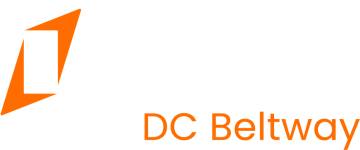HOA fees keep a neighborhood running. They cover landscaping, repairs, insurance, and the everyday upkeep that protects property values. When HOA payments stop, the basics slip. Walkways get dirty, lights go out, and shared spaces don’t feel as safe.
Missed payments build up fast, budgets shrink, maintenance slows, and projects stall. A well-kept neighborhood starts to look neglected. People notice, and frustration spreads. No one wants a community meeting to turn into a fight about unpaid dues.
It doesn’t have to get that far. Late fees can be collected without turning neighbors against each other. The key is clear rules, simple communication, and treating everyone the same. Boards that stay consistent and respectful protect both the money and the community.
HOAs in Hyattsville can take that approach now. The steps aren’t complicated, but they matter. Here’s how to collect dues fairly and keep the neighborhood strong.
Key Takeaways
- HOA fees keep neighborhoods running. In 2023, 370,000 U.S. HOAs collected $108.8 billion to cover repairs, upkeep, and safety.
- Even a few late payments can cause problems. Usually, 1–8% of homeowners fall behind, and during tough times, delinquency can jump to 35%.
- Clear rules and simple communication make collections easier. Boards can get dues without drama and keep the community strong.
Why HOA Fees Matter
Across the U.S., 370,000 HOAs manage neighborhoods for about 40 million households. That’s 53% of owner-occupied households in the country. In 2023, they collected around $108.8 billion in member assessments.
Most owners pay on time. But between 1 and 8 percent fall behind. During downturns, delinquency has spiked as high as 35 percent. Even a small share of missed payments can put big stress on an HOA’s budget. And when the money isn’t there, the rest of the community pays the price.
Common Causes of Delinquent HOA Fees
Late payments don’t always come from neglect. The most common reasons are:
Money Problems
Life throws curveballs. Job loss, medical bills, or unexpected expenses can make paying on time hard. Even homeowners who usually pay on time can fall behind.
Mix-Ups
Sometimes it’s just confusion. A missed due date, a misunderstood bill, or lost notices can turn into late payments if no one notices early.
Disagreements with the Board
Some people hold back payments because they don’t agree with board decisions or don’t think the services are worth it. It happens, even if it causes tension.
Absentee or Rental Owners
Not everyone lives in their home all the time. Absentee owners or landlords may forget or ignore HOA meetings and payments. Without reminders, these accounts can quickly fall behind.
Setting the Groundwork: Strong Policies and Communication
Collections are easier when the groundwork is solid. Make sure governing documents spell out when payments are due, what late fees look like, and what steps follow if payments stop. Keep those rules in line with Maryland law.
Pro Tips: Communicate early, send reminders before deadlines, and offer easy ways to pay online. For new homeowners, a simple welcome packet with fee details goes a long way.
Best Practices for Collecting Delinquent Fees Without Conflict
The goal is more than collecting dues. It’s keeping the community together while you do it.
- Start with a Friendly Reminder
When a payment is late, send a quick, polite note. Keep it short and neighborly. Most of the time, that’s enough to get the account back on track. Make it clear the payment is overdue without making it personal.
- Offer Payment Plans
If someone can’t pay the full amount, work out a plan that fits their situation. Put it in writing so everyone is on the same page. This helps them catch up and keeps the community’s budget steady.
- Be Consistent
Apply the rules the same way for everyone. No special treatment. Fair enforcement builds trust and makes future collections easier.
- Take It Step by Step
Handle collections gradually. Start with a reminder, then a late notice with fees, then a demand letter. Legal action should only happen as a last step. This keeps tension low and relationships intact.
- Keep Communication Respectful
Handle everything privately. Don’t shame anyone or make their late payments public. Respectful communication keeps trust in place and focuses on solving the problem without drama.
Legal Options in Maryland for HOA Collections
HOAs have the right to collect what’s owed. That can mean late fees, interest, liens, or in rare cases, foreclosure. These are strong tools. They should also be last resorts. Moving too quickly risks resentment and lasting conflict.
This is where professional help matters. A management company knows how to follow the law, file notices, and protect the board from liability.
How to Avoid Conflict While Enforcing Rules
It’s hard for volunteer board members to chase down their neighbors. That compliance setup almost guarantees conflict. A neutral third party can handle the reminders, notices, and, if needed, legal action. Transparency also helps. When homeowners see reports and understand where their money goes, they’re more likely to pay on time.
Protect Community Harmony while Collecting Delinquent Fees with Help from Experts
Dealing with delinquent HOA fees can be stressful. Boards often worry about upsetting neighbors while trying to keep finances in order. That’s where professional support makes a difference. A property management company steps in to handle collections and communication, letting the board focus on running the community instead of chasing payments.
PMI DC Beltway provides practical, hands-on support that keeps the process fair and smooth:
- Tracking payments and sending reminders
- Enforcing rules consistently for all homeowners
- Handling legal compliance if accounts go to collections
- Maintaining accurate financial records, boards can share openly
With the right guidance, delinquent fees don’t have to create tension. Boards can collect what’s owed while keeping trust intact. If your HOA in Hyattsville wants a stress-free, professional approach to collections, reach out to PMI DC Beltway today. Let us help you protect your community, your relationships, and your peace of mind. Visit our HOA Accounting & Reporting page to get started.
FAQs
What are common excuses homeowners give for not paying HOA fees?
Homeowners fall behind for a few reasons. Some feel the community maintenance isn’t worth the cost. Others say they didn’t get the bill or don’t agree with the board's decisions. These complaints may seem valid, but HOA rules usually don’t let homeowners withhold payments. Fees still need to be paid on time. The best way to handle concerns is to talk to the board directly.
How can HOAs handle delinquent fees without resorting to legal action?
HOAs don’t have to go to court to collect late fees. Boards can send reminders, set up simple payment plans, and charge late fees fairly. Some also work with collection agencies to recover payments without legal trouble. Clear communication and treating everyone the same keep things smooth. A step-by-step approach, like a reminder, a late notice, and a demand letter, usually works without creating tension in the community.
What are the risks of not paying HOA fees?
Not paying HOA fees has real consequences. Homeowners can face late fees, interest, and liens that hurt credit scores and resale value. In extreme cases, unpaid fees can even lead to foreclosure, even if the mortgage is current. Late payments also hurt the community budget and maintenance plans. It’s smarter to talk to the HOA and set up a plan than risk extra fees, liens, or conflict.


